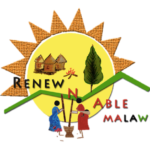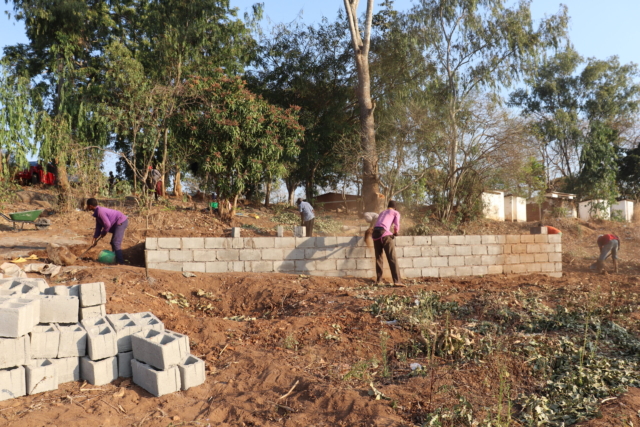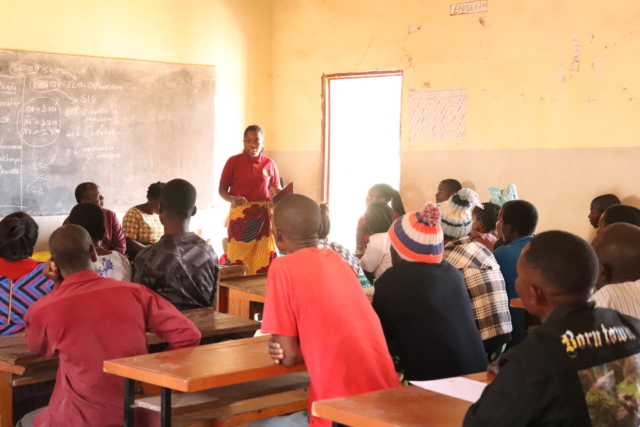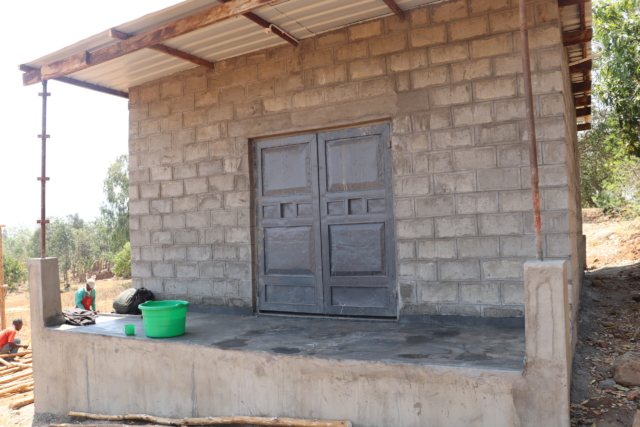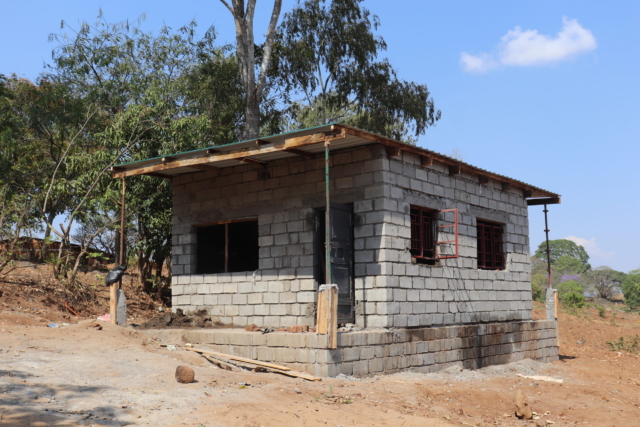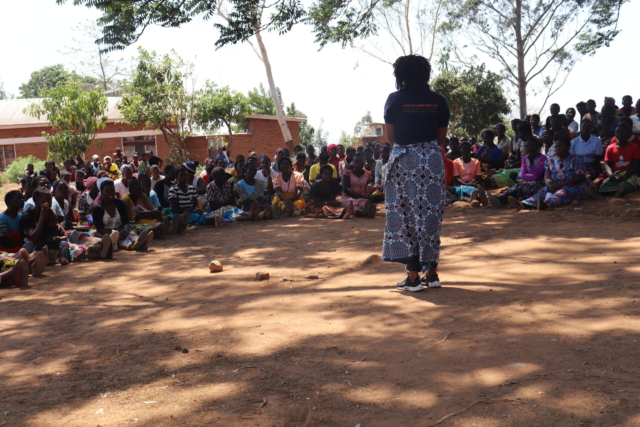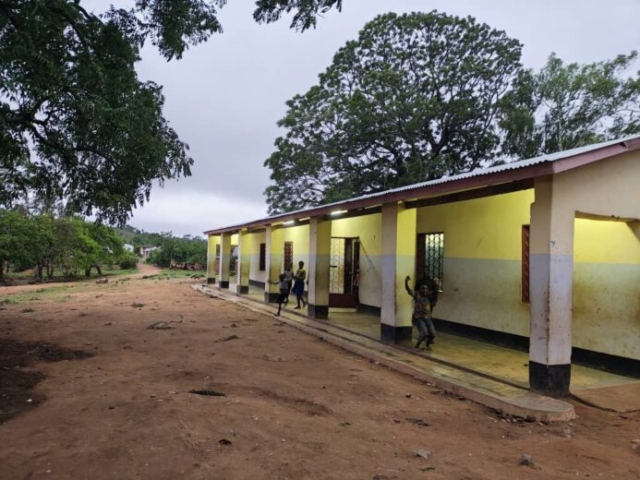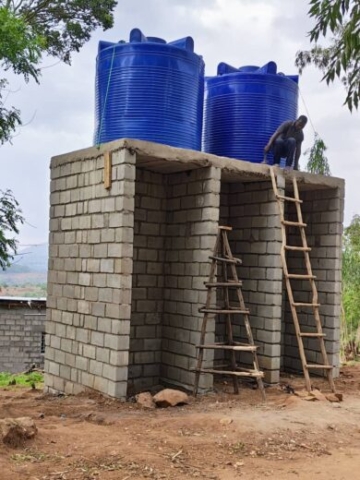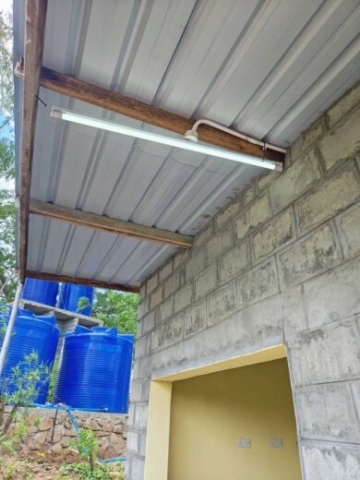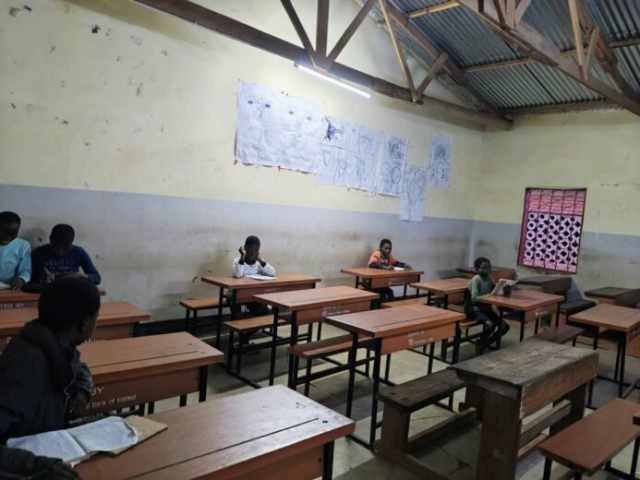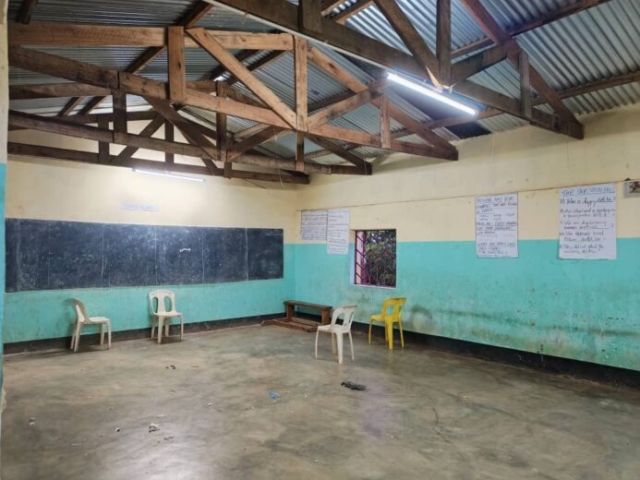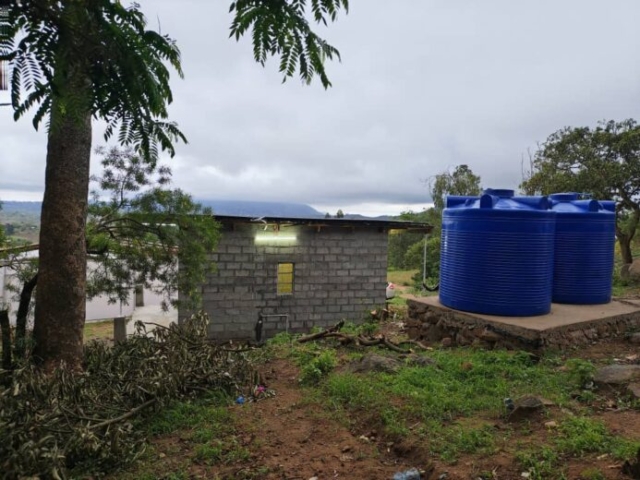Climate Change Adaptation Using Solar
The Problem
According to the Ministry of Agriculture, over 80% of Malawi’s population are subsistence farmers who rely mainly on rain-fed farming for their livelihoods. However, over the past 3 years, Malawi has been heavily affected by 4 climate change induced tropical cyclones and erratic and unpredictable weather patterns which have caused either flooding or prolonged dry spells reducing the farmer’s harvests in the southern part of Malawi which has led to widespread hunger and loss of livelihoods for local farmers. Additionally, Malawi has an electricity access rate of only 14% which also causes challenges in schools as children cannot study
after dark and do not have access to clean drinking water which has led to a drop in the quality of education in rural areas and the spread of waterborne diseases.
The Solution
In July 2024 EKOenergy ecolabel gave Renew'N'Able Malawi a grant of €57,884 to implement a project that will drill a borehole and install solar powered water pumping and distribution systems on a 2000 sqm plot of land that has already been identified and provided by the community through the village chief in T/A Bvumbwe in Thyolo District to enable greenhouse drip irrigation. The plot is adjacent to a local primary school and a nursery school that have a combined total enrollment of 2,166 students. These schools will benefit by tapping into the solar powered system for lights to enable students to study as well as clean drinking water supplied by 5 tapped water points that will be installed at the school. The village has a population of 8,760 and is located in an area that is 5 kilometres away from the national electricity grid. The surrounding community will also be provided with 3 tapped water points
where they can access solar powered clean drinking water in addition to a solar kiosk where they can charge their phones and access solar lighting products. A 25sqm energy kiosk will be constructed at the 2000sqm plot and will be equipped with a 5Kw solar PV
array that will power a 2hp solar water pump and a 10000ah lithium ion battery storage power bank that will be coupled to a 5Kva Inverter to provide electricity to the 2 schools for lights and also power for security lights around the plot and the greenhouse control systems. Water will be pumped from a 60m deep high yield borehole, and the water will be stored in six 5,000-litre overhead tanks that will be supplied by the project. The water tanks will then supply water using gravity to drip irrigate crops in the 500sqm climate-controlled Greenhouse that will be provided by the project. Water will further be distributed to 5 water points around the plot for irrigating other crops planted outside the greenhouses and an additional 3 water points will be made available for the community at large to access clean and safe water for drinking or other purposes. Phone charging services and rentals of home solar kits will be offered at the kiosk as an income generation activity to ensure long term sustainability of the project.
The Impact
1. Reduced impact of Climate Change in Williams Village – The solar powered boreholes and Greenhouse systems will help mitigate the effects of climate change by enabling the farmers to plant their crops all year round even during periods of droughts or flooding. This project directly contributes to the achievement of SDG13 – ‘Climate Action’ by taking urgent action to combat climate change and its impacts as well as SDG2 – ‘Zero Hunger’ which aims to eliminate hunger and create a food secure world.
2. Improved quality of Education and Sanitation in Williams Village – This contributes to the achievement of SDG6 – ‘Clean Water and Sanitation’ which seeks to ensure universal access to safe and drinking water. It is further linked to SDG3 – ‘Good Health and Well Being’ which aims to prevent needless suffering and premature deaths from preventable diseases such as cholera andother diseases. Providing water at the school will contribute to the achievement of SDG4 – ‘Quality Education’ which aims to endure inclusive and equitable education for all’
3. Access to Clean Energy – The project also contributed to the achievement of SDG7 which seeks to ensure universal access to affordable, reliable, sustainable and modern energy for all.
Project Media
Funded by:
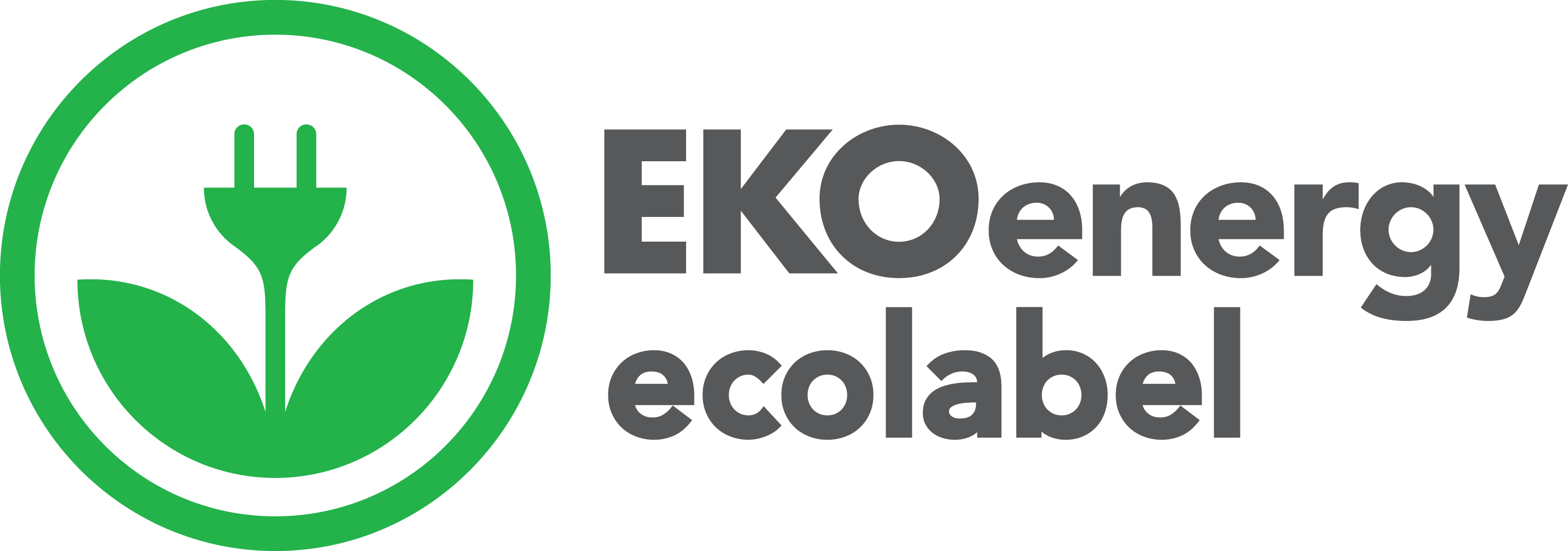
Project Budget:
€57,884
Project Duration:
6-Months
July - December 2024
Current Status:
Implementation in Progress
As of 31st December 2024, project is at 99% completion
